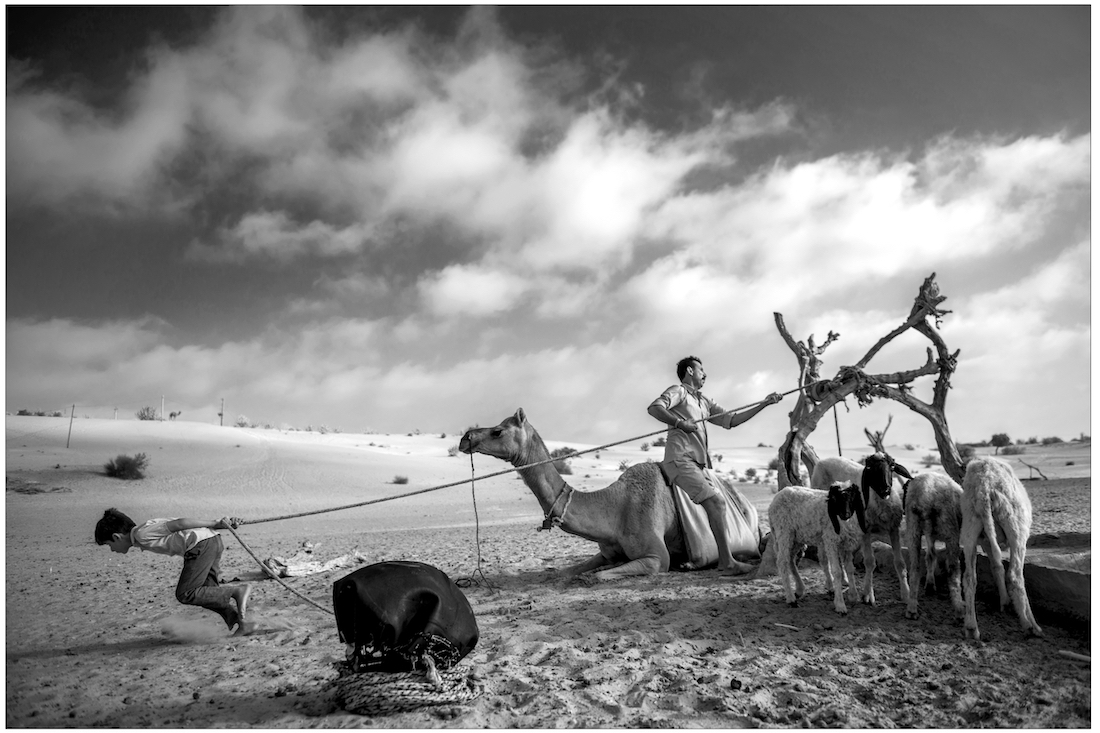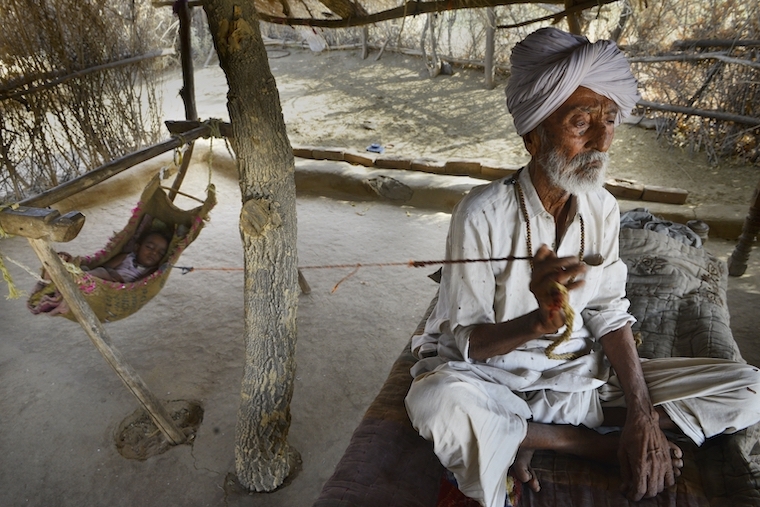

Documentary photographer Tarun Chouhan grew up watching National Geographic and Discovery Channel on an old television, which used to be locked up in a wooden box. Raised in a village on the outskirts of Barmer city, Rajasthan, Tarun imbibed the love for human beings and mathematics, owing this to his father, who was a mathematics teacher. While facing hardships early on in life, Tarun began understanding the complexities ever-present in humans. Eventually, he unearthed and developed an interest in photography, and with support from his father, moved to Mumbai to pursue it further.
While studying commercial photography he always enjoyed observing people and capturing their quotidian moments in a metropole like Mumbai. ‘In Mumbai, many people used to carry many emotions. Post college or even during vacations, I would spend entire days among some of the funniest and most interesting people in the city. Although post studying in Mumbai, I thought it would be appropriate to go back to Rajasthan because I wanted to capture my city and people in photographs, which would not change with time. After college I began my journey with photography — capturing my city and the people who inhabited it,’ he explains.
Running the capitalist rat race in Mumbai made Tarun realise the importance of the little things that make humans and interactions with them special. The shift in his thought process has helped him develop a more meaningful connection with nature, and he wishes for others to develop this bond as well. Talking about the sense of fulfilment that photography helps him achieve, he says, ‘Photography is the only medium through which I can give a meaningful form to my being. The people that I click become immortal with me in those pictures.’ Upon his return to Rajasthan, things came fairly easily to him since people’s lives and their faces had always intrigued him. Connecting with his own people further gave him a sense of contentment and peace — he found great joy in getting to know their stories and their lives deeper.

Tarun’s portraiture weaves a narrative. His lens captures a moment, arrested in a tale running across time and space, which makes his images enigmatic. Inspired by the vibrant culture in the country, the photographer finds himself very excited while exploring all the colours, eating habits and clothing. Being able to read the faces of people and understanding their body language is like a puzzle to be solved for him. Every facial expression and emotion passing through his subjects is equivalent to a novel waiting to be delved into. He further elucidates, ‘My perspective remains to show both humans and nature flowing through the same picture, since the human body is so deeply rooted in nature and that does not let me wander away from it.’ To earn a livelihood, Tarun also dabbles in fashion and art photography.
The photographer’s creativity stems from his way of life and his simplicity. Further propelling his practice is the constant change our environment goes through — Tarun finds himself deeply moved by it. Something as mundane as sunshine, or even the evening breeze, inspires thought. The seed of thought further germinates with experiences he may have been through. Describing his creative process further, he adds, ‘After some time, that idea takes the form of a picture that I capture. I listen to ghazals to keep my thoughts pure and calm, and read books. Sometimes I just leave my thoughts with the soul and undertake a long journey, wherein the experience is spiritual rather than corporeal.
Tarun’s portraits have a feeling of honesty attached to them because he belongs to the community he photographs. Unlike many others, his gaze never eroticises his subjects. He feels free and comfortable with the culture and understands the people he’s engaging with. He further breaks it down, ‘I like to live and see life in a simple way. I don't want to run, I don't want to shout, I’m satisfied with just quiet solitude. I don’t have any problems with change, but having said that, I don’t think that my soul will let me change and wander from my true self — the self that believes in authentic representation of all.
Despite the uncertainties and hardships that everyone went through this year, Tarun’s silver lining was his exhibition at the Mehrangarh Fort, Jodhpur, wherein thousands of people from all across the world were acquainted with his work. The joy on everyone’s faces while seeing his work was one of the most exhilarating moments for him, during this grim year. Talking about the eight month lockdown period, he says, ‘I spent the time in my village and stayed close to my father. I was able to explore our relationship better and this helped me understand myself even more. These days the moonlight is sharp and it makes the nights in the desert exquisite. I have been contemplating on these nights.’ His next project is an ambitious one and he wishes to introduce the world to a newer way of life, away from the worldly race. He’s hopeful and waiting for the situation to get better to take on other projects.
Text Unnati Saini